
Are you in a hurry and wondering how long it will take for your dishwasher to finish its cycle? Well, the duration of a dishwasher cycle can vary depending on many factors such as the type of cycle selected, the amount of dirt on the dishes, and the efficiency of your dishwasher. In this guide, we will provide you with all the information you need to understand how long a dishwasher cycle typically takes and what factors can affect this duration.
Generally, dishwashers have various programmes to choose from, including quick and regular cycles. The ‘quick wash’ programme is designed for when you need your dishes cleaned in a shorter amount of time. It typically takes about 30 minutes to complete, making it a convenient option when you’re in a hurry. On the other hand, the regular wash cycle usually takes around 2 hours. This longer duration allows for more thorough cleaning and drying of the dishes.
However, it’s important to note that the actual time can differ depending on the dishwasher model and brand. Some dishwashers have advanced features such as a ‘sensor wash’ which automatically adjusts the cycle duration based on the level of dirtiness and the amount of dishes in the machine. This means that if you have a smaller load, the dishwasher might finish its cycle quicker than if you had a full load.
In addition, other factors such as limescale buildup, clogged filters, or insufficient water pressure can affect the dishwasher’s overall performance and increase the cycle duration. If you’ve noticed that your dishwasher is taking longer than usual to finish a cycle or not working properly, it may be a sign that you need to clean it or call a professional for maintenance.
To conclude, the time it takes for a dishwasher to finish its cycle varies depending on the type of programme selected, the amount of dirt on the dishes, and the efficiency of the dishwasher. While ‘quick wash’ programmes can be completed in as little as 30 minutes, regular wash cycles can take up to 2 hours. Remember to consult your dishwasher’s manual for accurate information on cycle durations and for troubleshooting any potential issues that may arise.
Reason 7: Insufficient Water Pressure
Insufficient water pressure is another common reason why a dishwasher may take longer to finish its cycle. If the water pressure in your home is too low, the dishwasher may not be able to clean your dishes effectively or complete its cycle in a timely manner.
There are several reasons why you may have insufficient water pressure in your home. One possible reason is a clogged or blocked water line. Over time, mineral deposits, limescale, or dirt can build up in the water line, restricting the flow of water and reducing the water pressure. If this is the case, you may need to clean or replace the water line to improve water flow and pressure.
Another potential cause of insufficient water pressure is a problem with the dishwasher itself. If the dishwasher’s water inlet valve is faulty or not working properly, it may not be receiving enough water to perform its cleaning cycles efficiently. In such cases, you may need to call a professional dishwasher repair service to diagnose and fix the problem.
If you’re considering buying a new dishwasher, it’s important to factor in the water pressure requirements of different models. Some dishwashers, especially older or mini-dishwashers, may require higher water pressure to work efficiently. So, if your home has low water pressure, you may need to choose a dishwasher that is specifically designed to work with lower water pressure.
In conclusion, insufficient water pressure can significantly impact the time it takes for a dishwasher to finish its cycle. Whether it’s due to a clogged water line, a faulty water inlet valve, or incompatible water pressure requirements, addressing and resolving this issue is essential for optimal dishwasher performance.
Understanding the Dishwasher’s Cycle
How long does a dishwasher take to finish?
One of the most common FAQs about dishwashers is how long they take to finish. The answer to this question can vary depending on the selected cycle, the dishwasher model, and the condition of the dishes.
Quick Cycle
Modern dishwashers often have a ‘quick’ or ‘fast’ cycle option for those in a hurry. This cycle typically takes around 30 minutes to complete.
Normal Cycle
The ‘normal’ cycle is the most commonly used cycle for everyday dishwashing. This cycle usually takes around 2 hours to finish.
Heavy Cycle
The ‘heavy’ cycle is designed for heavily soiled dishes or pots and pans that require more cleaning power. This cycle can take up to 3 hours to complete.
Auto Cycle

The ‘auto’ cycle is a smart cycle that automatically adjusts the duration based on the dirt and build-up on the dishes. This cycle can take anywhere from 2 to 4 hours to finish.
Other Factors
The time it takes for a dishwasher to finish also depends on other factors such as the water pressure in your kitchen, the temperature of the water, and whether the dishwasher needs to heat the water itself.
Considering Repair
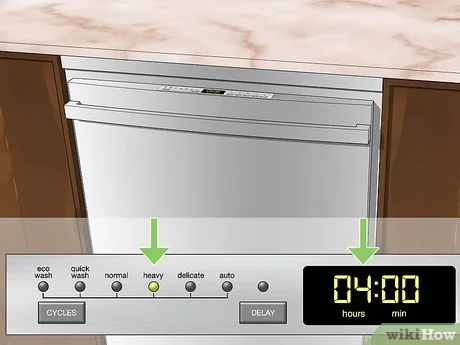
If your dishwasher is taking longer than usual to finish or if you suspect there may be a problem, it is best to consult the user manual or call a professional for repair. Insufficient pressure, clogged filters, limescale build-up, or other heating-related issues could be causing the longer cycle times.
In Conclusion
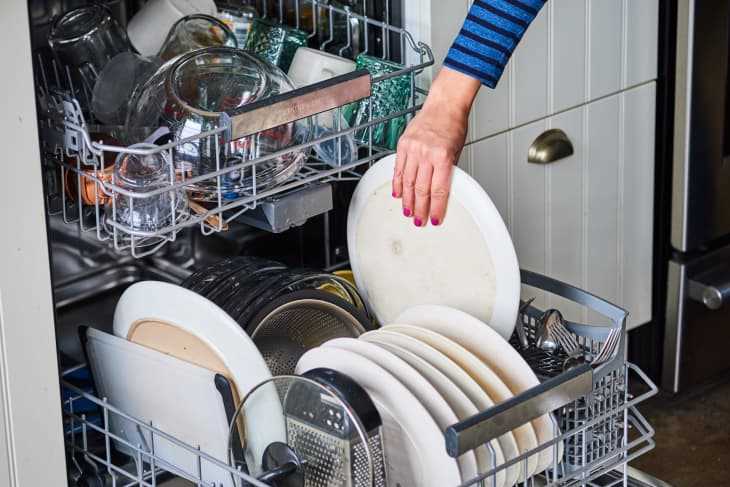
How long a dishwasher takes to finish depends on the selected cycle, the dishwasher model, and the condition of the dishes. The ‘quick’ cycle is the fastest, usually taking around 30 minutes, while the ‘auto’ cycle is the longest, taking up to 4 hours. If your dishwasher is taking longer than usual or showing error codes, it is best to get it inspected and repaired by a professional.
Factors Affecting Dishwasher Cycle Time
- Limescale build-up: Limescale can affect the performance of a dishwasher and increase the cycle time. If your dishwasher has limescale build-up, it may take longer to clean the dishes.
- Water pressure: The water pressure in your house can also affect the dishwasher cycle time. If the water pressure is low, the dishwasher may take longer to complete a cycle.
- Type of dishwasher: Different dishwashers have different cycle times. Some dishwashers have dedicated cycles for specific types of dishes or dirt levels, which can affect the overall cycle time.
- Program selection: The cycle time can vary depending on the program you select. Some programs, like the ‘quick wash’, are designed to clean dishes in a shorter amount of time.
- Level of dirt: The amount of dirt on the dishes can also impact the dishwasher cycle time. If the dishes are heavily soiled, the dishwasher may take longer to clean them.
- Age of the dishwasher: Older dishwashers may take longer to complete a cycle compared to newer models. This can be due to wear and tear or inefficient cleaning systems.
- Lack of maintenance: Insufficient maintenance, such as not cleaning the dishwasher regularly or not descaling it, can cause longer cycle times.
In conclusion, there are several major factors that can affect the cycle time of a dishwasher. These include limescale build-up, water pressure, type of dishwasher, program selection, level of dirt, age of the dishwasher, and lack of maintenance. Considering these factors can help you understand why your dishwasher may take longer to finish a cycle and determine if any action needs to be taken, such as cleaning or seeking professional services.
Tips to Reduce Dishwasher Cycle Time
If you need to know how long a dishwasher cycle takes, there are a few reasons why it might be taking longer than expected. In this section, we will discuss some common reasons and tips to reduce dishwasher cycle time.
1. Check the Water Pressure
Insufficient water pressure can be a reason for longer dishwasher cycles. Make sure the water pressure in your house is adequate. If there is low water pressure, dishes may not be properly washed or cleaned, hence leading to longer cycle times.
2. Use Quick Programmes
Many dishwasher models, such as Beko, offer quick or mini programmes that take less time to complete. If you have a full load of lightly soiled dishes, using these quick programmes can significantly reduce the cycle time.
3. Don’t Overload the Dishwasher
Overloading the dishwasher can cause dishes to not get properly cleaned. Hence, the dishwasher might need to run through more cycles to ensure everything is washed. To reduce cycle time, try not to overload the dishwasher and leave enough space between dishes for water and detergent to reach all surfaces.
4. Check for Error Codes
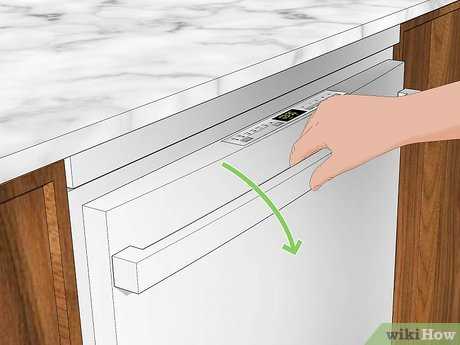
If your dishwasher is taking too long and you’re not sure why, it’s a good idea to consult the user manual or check online for error codes specific to your dishwasher model. Some error codes can indicate a problem that needs to be addressed by a professional service.
5. Use Warm Water
Using warm water instead of cold water can help speed up the dishwasher cycle. Warm water helps to activate the detergent faster and improves the cleaning efficiency.
6. Run the Dishwasher at Optimum Load
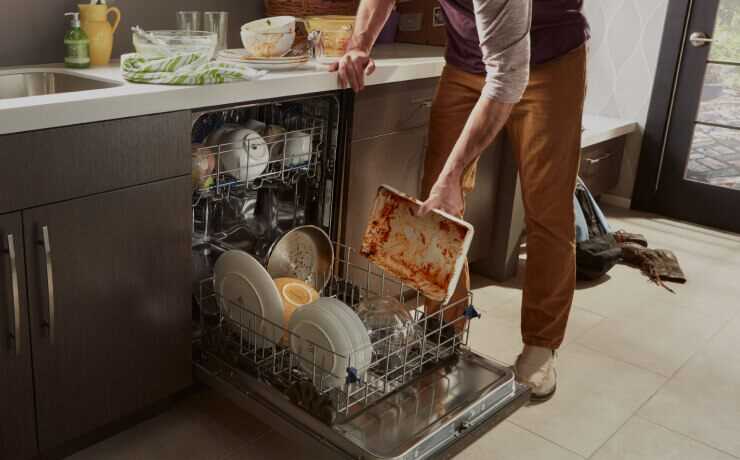
Running a dishwasher with a partial load can increase the cycle time. For most efficient and faster results, try to run the dishwasher when it’s fully loaded. If you don’t have enough dishes for a full load, consider using the half-load or dedicated programmes if your dishwasher has them.
7. Check for Any Blockages
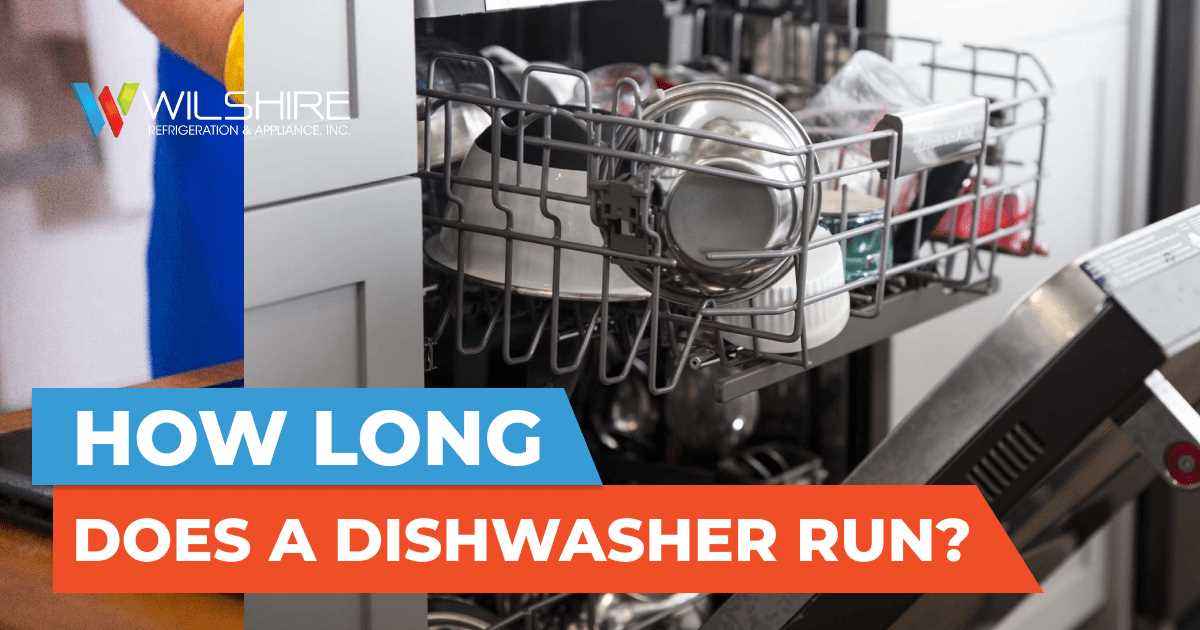
If your dishwasher is running slow, check for any blockages in the spray arms, filters, or drain hose. Blockages can restrict the water flow and lead to longer cycle times. Clean these areas regularly to ensure smooth operation.
8. Contact Customer Support or Professional Services

If you have tried all the above tips and your dishwasher is still taking too long to finish a cycle, it is recommended to contact customer support or professional services. They can provide specific guidance and assistance based on the make and model of your dishwasher.
Remember, the actual time a dishwasher takes to finish a cycle may vary depending on the dishwasher model, programme selection, and other factors. Refer to the user manual or the manufacturer’s website for more information on specific cycle times for your dishwasher.
FAQ
Why does the dishwasher take longer than usual to finish?
There could be several reasons why your dishwasher is taking longer to finish. One possible reason is that you have selected the wrong cycle. Each cycle of the dishwasher is designed to clean different types of dishes and utensils, so if you have selected the wrong cycle, it may take longer to finish.
How do I know if I have selected the wrong cycle?
If you have selected the wrong cycle, you may notice that your dishes are not getting as clean as they should be. You may also notice that the dishwasher is running for a longer period of time than usual. Checking the user manual or online resources for your dishwasher model can also help you determine if you have selected the wrong cycle.
What should I do if I have selected the wrong cycle?
If you have selected the wrong cycle, the best thing to do is to stop the dishwasher and restart it with the correct cycle. If the dishwasher has already completed a significant portion of the cycle, you may want to consider cancelling the cycle and starting over to ensure that your dishes are properly cleaned.
What are the different cycles on a dishwasher?
The different cycles on a dishwasher can vary depending on the model, but some common cycles include normal, heavy, light, quick, and eco-friendly. The normal cycle is typically used for everyday dishes, while the heavy cycle is for heavily soiled dishes. The light cycle is for delicate items, the quick cycle for when you need dishes done quickly, and the eco-friendly cycle is designed to use less water and energy.
Can selecting the wrong cycle damage my dishes?
While selecting the wrong cycle may not necessarily damage your dishes, it can result in them not getting properly cleaned. For example, if you select a light cycle for heavily soiled dishes, they may not come out as clean as they should be. It is important to select the appropriate cycle for the best cleaning results.
Is it common for people to select the wrong cycle on their dishwasher?
Yes, it is fairly common for people to accidentally select the wrong cycle on their dishwasher. This can happen if you are not familiar with the different cycles available on your dishwasher or if you quickly press the wrong button. Taking the time to read the user manual or familiarize yourself with the different cycles can help prevent this mistake.












